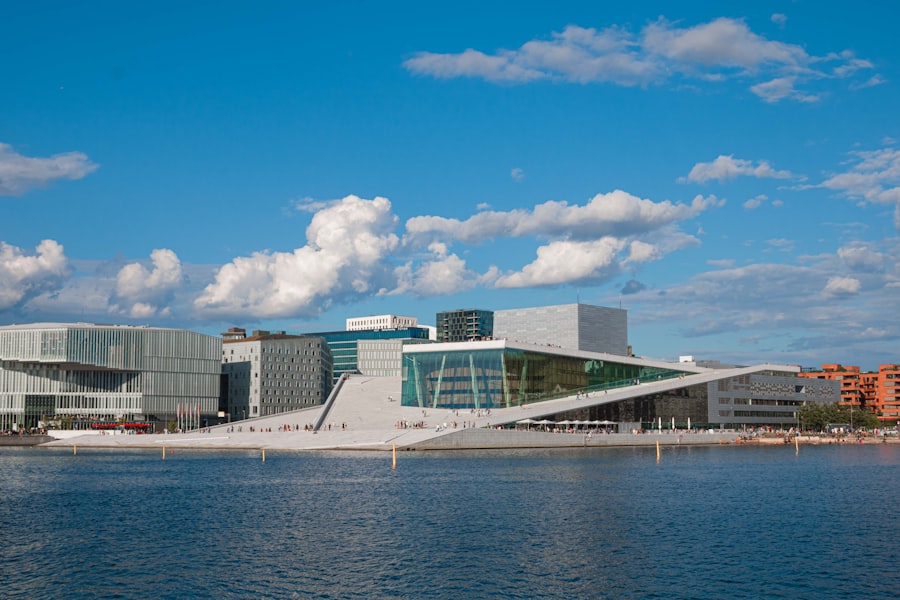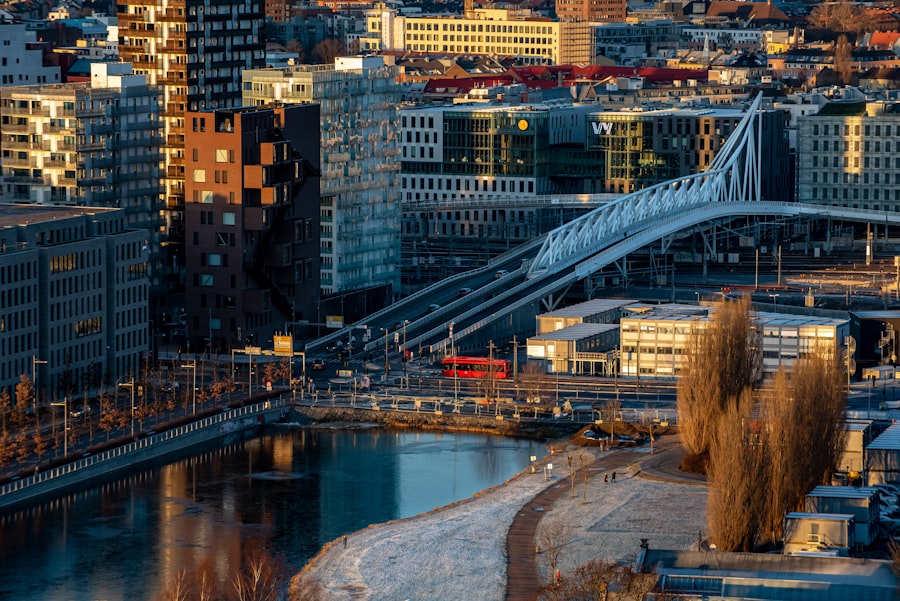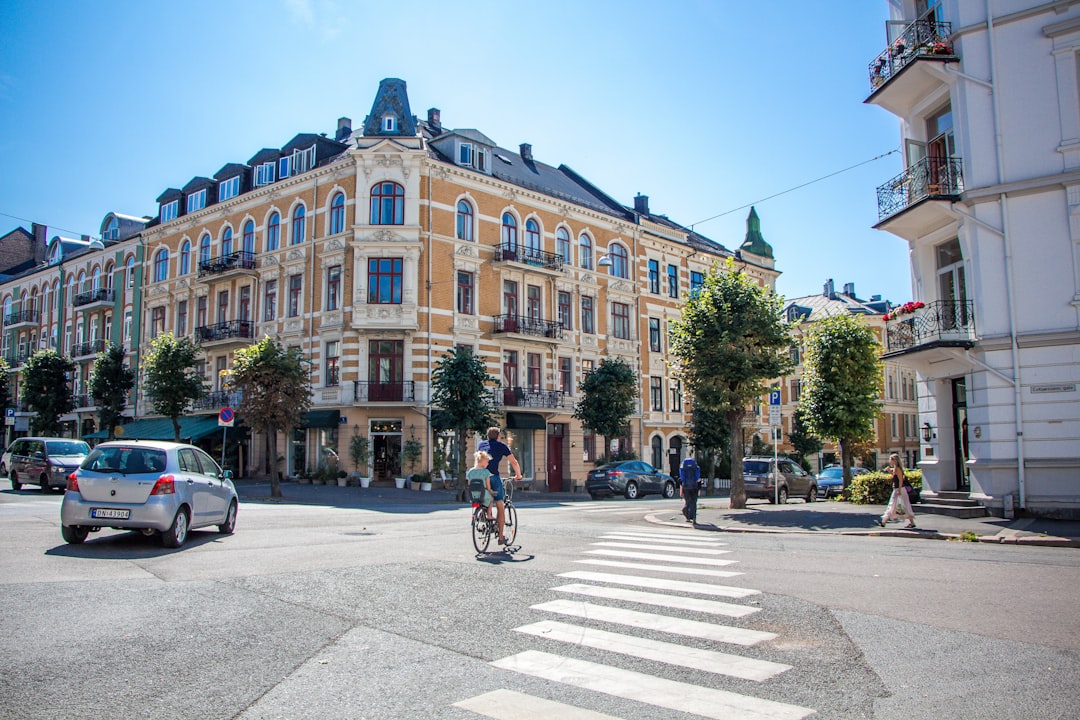Arriving in Norway can be an exhilarating experience, filled with anticipation and excitement. However, it is essential to navigate the immigration and customs processes smoothly to ensure a hassle-free entry into the country. Upon landing, you will first encounter the immigration control area, where you will need to present your passport and any necessary visas.
If you are a citizen of a country within the Schengen Area, you may pass through the EU/EEA lane, while non-EU citizens will need to use the non-EU lane. It is advisable to have all your documents ready and to be prepared for any questions regarding your purpose of visit, duration of stay, and accommodation arrangements. Once you have cleared immigration, you will proceed to customs.
Norway has strict regulations regarding the importation of goods, so it is crucial to be aware of what you can and cannot bring into the country. For instance, there are limits on the amount of alcohol and tobacco you can bring without incurring duties. If you are carrying large sums of money or valuable items, it is wise to declare them to avoid any complications later on.
Overall, being well-prepared for these initial steps will set a positive tone for your new adventure in Norway. Take the first step. Book a consultation with the Norway Relocation Group for your move to Norway. https://norwayrelocation.no/one-hour-strategy-session/
Summary
- When arriving in Norway, be prepared to navigate immigration and customs procedures, including having necessary documentation and declaring any items of concern.
- When booking accommodation in Norway, consider using reputable websites and reading reviews to ensure a comfortable and safe stay.
- Understanding public transportation and taxi services in Norway can help you navigate the country efficiently and cost-effectively.
- Look for reputable currency exchange services in Norway to convert your money at fair rates.
- Keep important emergency contacts on hand, including local emergency services, embassy or consulate information, and any relevant support services for expats.
Finding Accommodation: Tips for Booking a Place to Stay
Finding suitable accommodation in Norway can be a daunting task, especially in bustling cities like Oslo. The first step is to determine your budget and preferred location. Oslo offers a variety of neighbourhoods, each with its unique charm and amenities.
For instance, if you prefer a vibrant atmosphere with plenty of cafes and cultural activities, areas like Grünerløkka or Aker Brygge might be ideal. Conversely, if you seek tranquillity and proximity to nature, consider looking in areas like Nordstrand or Bygdøy. When it comes to booking a place to stay, there are several options available.
Websites such as Finn.no and Airbnb provide a plethora of choices ranging from short-term rentals to long-term leases. It is advisable to read reviews and check the amenities offered before making a decision. Additionally, consider reaching out to local real estate agents who can assist you in finding a place that meets your needs.
Remember that the rental market can be competitive, so acting quickly when you find a suitable option is essential.
Getting Around: Understanding Public Transportation and Taxi Services

Navigating Norway’s public transportation system is relatively straightforward, especially in urban areas like Oslo. The city boasts an extensive network of buses, trams, and metro lines that connect various neighbourhoods and attractions. Purchasing an Oslo Pass can be a wise investment for newcomers, as it provides unlimited travel on public transport as well as free entry to many museums and attractions.
The public transport system is known for its punctuality and efficiency, making it easy to explore the city without the need for a car. For those who prefer more direct transportation options, taxis are readily available throughout Oslo. While they can be more expensive than public transport, they offer convenience, especially late at night or when travelling with luggage.
Ride-hailing apps like Uber are also operational in the city, providing an alternative for those who prefer using their smartphones to book rides. Regardless of your choice of transport, understanding the local system will enhance your experience in Norway.
Currency Exchange: Where to Convert Your Money
Upon arriving in Norway, one of the first things you will need to consider is currency exchange. The official currency is the Norwegian krone (NOK), and it is advisable to have some cash on hand for small purchases or places that do not accept cards. Currency exchange services are available at airports, banks, and exchange offices throughout the city.
However, be cautious of exchange rates and fees; it is often more cost-effective to withdraw cash from ATMs using your debit or credit card. Many establishments in Norway accept card payments, including contactless options, which are widely used. Therefore, carrying large amounts of cash may not be necessary for everyday transactions.
Nonetheless, it is wise to keep some cash for emergencies or smaller vendors that may not have card facilities. Familiarising yourself with the currency and its denominations will help you manage your finances effectively during your stay.
Emergency Contacts: Important Numbers to Have on Hand
In any new country, knowing emergency contact numbers is crucial for your safety and peace of mind. In Norway, the emergency services can be reached by dialling 112 for police assistance, 113 for medical emergencies, and 110 for fire services. It is advisable to save these numbers in your phone or write them down in a convenient location so that you can access them quickly if needed.
Additionally, it may be beneficial to have contact information for your country’s embassy or consulate in Norway. They can provide assistance in case of lost passports or other emergencies that may arise during your stay. Familiarising yourself with these important contacts will ensure that you are well-prepared for any unforeseen circumstances.
Familiarizing Yourself with Local Laws and Customs

Understanding local laws and customs is essential for a smooth transition into Norwegian life. Norway is known for its high standard of living and progressive values; however, it also has specific laws that may differ from those in your home country. For instance, drinking alcohol in public places is generally frowned upon, and there are strict regulations regarding littering and smoking in public areas.
Familiarising yourself with these social norms will help you integrate more seamlessly into Norwegian society. Moreover, Norwegians value personal space and privacy; therefore, it is important to respect these boundaries when interacting with locals. Greetings are typically reserved for close friends or family members; a simple nod or smile is often sufficient when meeting someone new.
Understanding these cultural nuances will not only enhance your experience but also foster positive relationships with those around you.
Finding Essentials: Grocery Shopping and Pharmacy Visits
Once settled into your new home, you’ll need to familiarise yourself with grocery shopping and pharmacy visits in Norway. Supermarkets such as Rema 1000, Coop, and Kiwi are popular choices for everyday shopping needs. These stores offer a wide range of products from fresh produce to household essentials at reasonable prices.
It is advisable to create a shopping list before heading out to ensure you purchase everything you need while avoiding impulse buys. In addition to supermarkets, local markets can provide fresh produce and unique items that may not be available in larger stores. Visiting these markets can also be an enjoyable way to immerse yourself in local culture while supporting small businesses.
When it comes to pharmacies, Apotek 1 is one of the largest chains in Norway, offering both prescription medications and over-the-counter products. Familiarising yourself with these shopping options will make settling into your new life much easier.
Connecting with Loved Ones: Setting Up Communication Services
Staying connected with loved ones back home is vital for many expats adjusting to life in a new country. Setting up communication services in Norway is relatively straightforward; various mobile providers offer competitive plans tailored for both locals and newcomers alike. Companies such as Telenor and Telia provide options ranging from pay-as-you-go plans to monthly subscriptions that include data packages suitable for internet browsing and social media use.
In addition to mobile services, consider utilising internet-based communication platforms such as WhatsApp or Skype for video calls with family and friends. These services often provide free options that can help bridge the distance without incurring high international call charges. Establishing reliable communication channels will not only keep you connected but also ease any feelings of homesickness as you embark on this new chapter in your life.
Exploring Your Surroundings: Must-See Attractions and Local Hotspots
Once you’ve settled into your new environment, it’s time to explore the many attractions that Norway has to offer. Oslo is rich in history and culture; must-see sites include the iconic Opera House, where visitors can walk on its roof for stunning views of the city skyline. The Viking Ship Museum showcases well-preserved ships from Norway’s seafaring past, while the Munch Museum houses an extensive collection of works by Edvard Munch, including his famous painting “The Scream.” Beyond Oslo’s urban attractions, nature lovers will find plenty of opportunities for outdoor adventures nearby.
The surrounding fjords offer breathtaking scenery and activities such as hiking or kayaking during the warmer months. Additionally, taking a short train ride can lead you to picturesque towns like Drøbak or Holmenkollen Ski Jump for panoramic views of the city below. Embracing these experiences will enrich your time in Norway and create lasting memories.
Registering with Local Authorities: Understanding Residency Requirements
As an expat living in Norway, understanding residency requirements is crucial for ensuring compliance with local laws. Depending on your nationality and purpose of stay—whether for work or study—you may need to register with local authorities within a specific timeframe after arrival. For EU/EEA citizens, registering at the local police station within three months is typically required; non-EU citizens may need to apply for a residence permit before arriving.
Gathering necessary documentation such as proof of employment or enrolment in an educational institution will facilitate this process. Once registered, you will receive a personal identification number (personnummer), which is essential for accessing various services such as healthcare and banking. Familiarising yourself with these requirements early on will help streamline your transition into Norwegian life.
Seeking Assistance: Accessing Support Services for Expats
Adjusting to life in a new country can sometimes feel overwhelming; however, numerous support services are available for expats in Norway. Various organisations offer resources tailored specifically for newcomers, including language courses, cultural integration programmes, and social events designed to connect individuals from diverse backgrounds. Engaging with these services can provide valuable insights into Norwegian culture while helping you build a supportive network.
One notable resource is the NLS Norwegian Language School located in Oslo, which offers comprehensive Norwegian courses tailored for all levels—from beginners to advanced speakers. Learning the language not only enhances your ability to communicate effectively but also deepens your understanding of local customs and traditions. The school’s experienced instructors create an engaging learning environment that fosters confidence in speaking Norwegian while providing practical language skills applicable in everyday situations.
In conclusion, embarking on a new adventure in Norway presents both challenges and opportunities for personal growth. By navigating immigration processes effectively, finding suitable accommodation, understanding local customs, and connecting with support services like NLS Norwegian Language School, you can ensure a smooth transition into this beautiful Scandinavian country while enriching your experience through language learning and cultural immersion.
Learn more about the Norwegian classes at the NLS Norwegian Language School in Oslo

